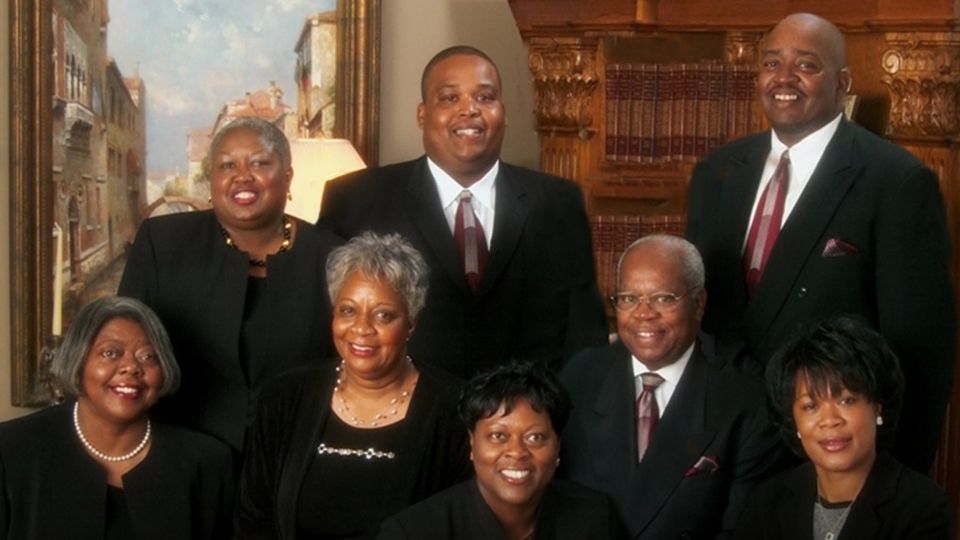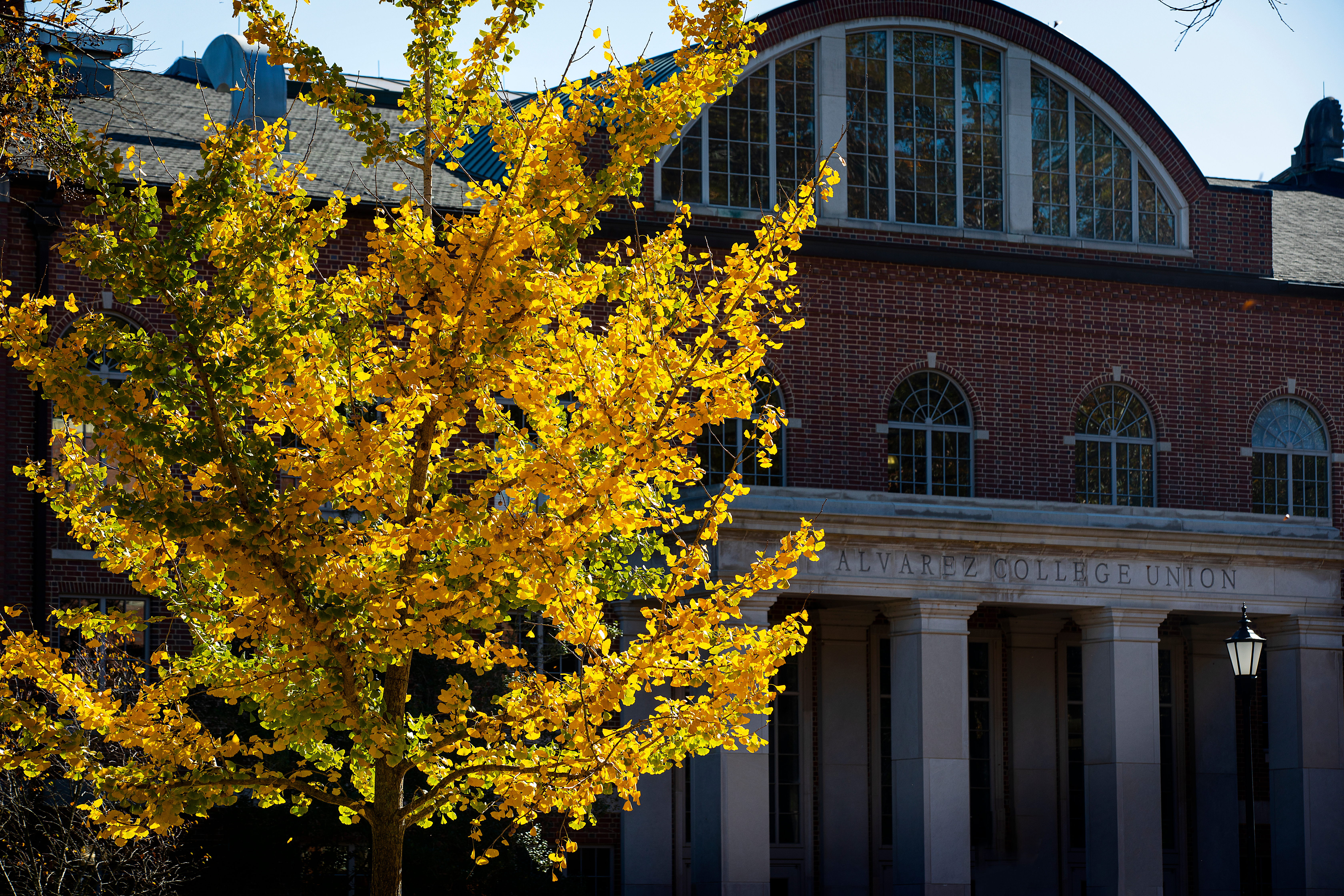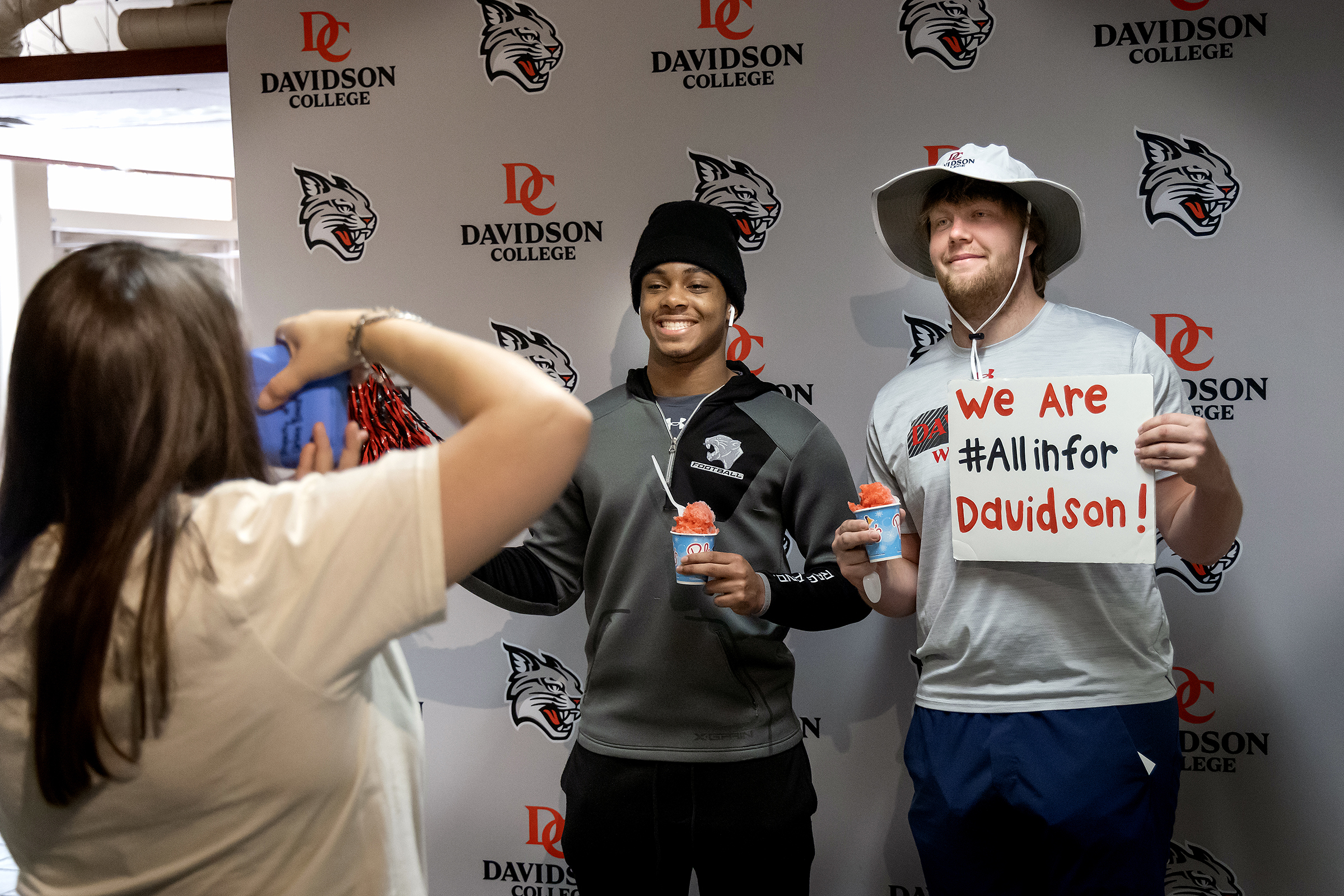Alumni Voices: Grief in the Time of Social Distancing
April 10, 2020
- Author
- Mark Johnson

W.D. Lemon and Sons Funeral Home has been a part of the community it serves for six decades. Dana Lemon looks forward to the day when she and her colleagues can again comfort bereaved families with an embrace.
Dana Lemon is president of W.D. Lemon and Sons Funeral Home in suburban Atlanta, where, for 61 years, they have comforted families during the most heartbreaking moments in their lives.
“Our funeral home is a family-run business,” said Lemon, a 1986 Davidson College graduate. “We have buried generations of families. They know us. When you see them, you hug them. You greet them like a family member.”
She paused: “None of that happens now.”
The COVID-19 pandemic has increased the need for the support, help and services that Lemon and her business provide, while simultaneously making it more difficult to offer it.
Lemon’s funeral home already has buried one body that tested positive, but she and her colleagues are not facing a threat from the deceased. Standard practices protect funeral home workers.
“It’s the families,” Lemon said. “They are the ones often who are spreading, sharing, infecting others without knowing. Two weeks ago, we had a removal for a man who died in McDonough [Ga.]. The coroner suspected he had COVID-19, but he wasn’t sure. It took two weeks to get the test results back. The man was in the ground. The family who was around him, the only thing they could do was self-quarantine.”
When Lemon or a staff member meet with a family, they keep a conference table between them. She and other colleagues have restricted the number of people at viewings and services following state and CDC guidelines. They stopped performing services at their chapel or in churches. Even the number of mourners at an outdoor, graveside service is limited.
“Tomorrow, we will have 10 family members at a graveside,” Lemon said. “The deceased had 15 children and grandchildren. The cemetery has told us five of them will have to sit in their cars.”
Families are being restricted in how they grieve and whether they can grieve together. Lemon and her colleagues have adjusted how they help customers. They talk with them about how and where they can get support now and what is possible later, such as a post-pandemic memorial service. The funeral home livestreams services when they can and leaves a recording of the service on the website to serve as a memorial video.
The goal is to enable families and friends to participate in whatever way they can, to know that they have support, however it reaches them.



